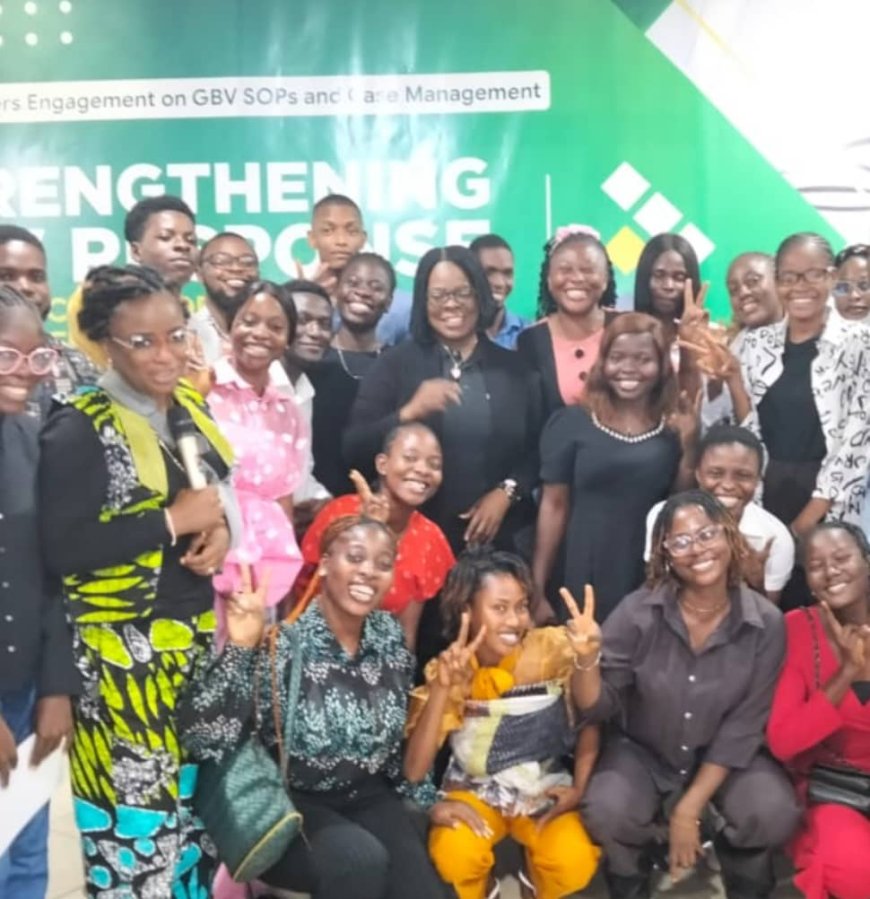Gender-based violence: Ogun trains journalists, content creators

A gender specialist, Mrs Ewajesu Fasina, has called on journalists, content creators and other media practitioners to always be conscious of empathising and protecting the rights of survivors of gender based violence in their reportage.
Fasina said that flouting the rights of the survivors can cause long-term damage to their reputation and well-being and may even cause depression and possibly death for others.
The gender expert made this call in Abeokuta, Ogun State, on Friday, at the stakeholders engagement on GBV, themed ‘Standard Operating Procedures, Case Management and Legislative Framework Workshop’ organised by the Gender Unit of the Ogun State Economic Transformation Project, and the Ministry of Women Affairs.
Fasina emphasised the sensitive nature of GBV cases, urging journalists to uphold survivor consent, confidentiality, and dignity in their reports.
When reporting GBV cases, issues such as consent to publish, safeguarding identities, and avoiding retraumatisation must be taken seriously.
“Journalists play a vital role in shaping public understanding of abuse. Their stories should empower survivors, not silence them,” Fasina said.
He added that according to a report from the Ministry of Women’s Affairs and Social Development, 28% of Nigerian women aged 25-29 have experienced some form of physical violence at the age of 15, while one in 10 boys also experience sexual abuse.
She explained that journalists have the power to overturn court cases with the power of the pen or the power of the keyboard; journalists have the opportunity to cover all angles, the health, the security, the legal aspects of every story.
That’s why we’ve taken time out to engage the media on the issue of gender based violence, without the support of the media, we can not win it, and only this group of people have the better view”, she continued.
She added that about 86 participants drawn from different media such as radio, newspapers including bloggers, social media influencers among others were invited for the training to have a mix of the old and the new media to ensure that no one is left behind
Also speaking, Ogun State Director of the Child Protection Network and Executive Director of Spring Centre for Sexual Assault Referral, Adedamola Lapite, called on journalists to earn survivors’ trust and avoid reports that could lead to re-traumatisation or further pain for the GBV survivors
“Journalists are seen as the heartbeat of society. Their reporting should uplift survivors, not diminish their spirit,” he stated.
Lapite also addressed a crucial legal point regarding consent and minors, clarifying that children under 18 are legally incapable of giving consent to sexual activity, saying that “just as the law prevents them from voting or driving, it also protects them from being exploited sexually under the guise of consent.”
He encouraged journalists to consult experts and verify facts before publishing any GBV-related stories, warning that poor reporting could do irreversible harm.
OGSTEP Project Manager, Mrs. Mosunmola Owo-Odusi, commended the media practitioners in attendance, urging them to apply the knowledge gained to enhance the quality of GBV reportage in the State.
Owo-Odusi said, “Your role is vital. With your help, we can shift the public narrative, protect the vulnerable, and ensure accountability.

 admin
admin 


